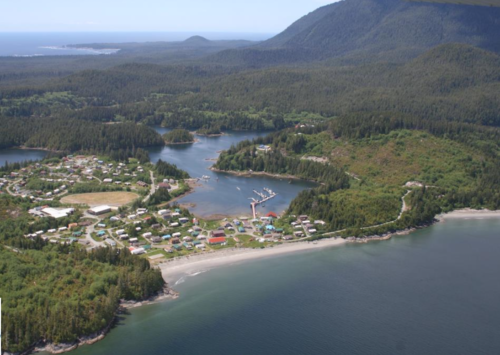Cermaq Canada and the Ahousaht First Nation of British Columbia have signed a new agreement allowing Cermaq to continue to farm salmon in the latter’s territory for another five years.
The sites operating in Ahousaht Territory covered under the agreement are among the 79 licenses across the sector that are set to expire on June 30, 2022.
The deal between Cermaq and the Ahousaht community illustrates what “area-based management” of the salmon industry in BC looks like. In 2018, the federal government mandated that beginning June 2022, the applications for new or renewal of fish farm licences in the province will have to meet two new criteria before the province approves them: consent from local First Nations that own the territories, and a stipulation from the Department of Fisheries and Oceans (DFO) that the farm won’t endanger BC wild salmon.
There is no word yet from the other salmon producers regarding the rest of the 79 licenses that are about to expire, but it is reasonable to expect that these producers are currently working out deals with other First Nations. Fisheries Minister Joyce Murray meanwhile is expected to announce her decision on those leases over the next few days.

Under the renewed agreement between Cermaq and the Ahousaht First Nation, the latter has an enhanced role in stewardship of the environment and wild salmon, in addition to those stipulated in the old agreement.
“We are at a point of unprecedented challenges brought on by climate change, and a lack of understanding, particularly in government of our Nation’s rights and this important relationship. We are committed to working together to tackle both challenges through continued advancement of meaningful and measurable climate action, a focus on the health and wellbeing of the Ahousaht Nation, the protection and enhancement of wild salmon and providing open dialogue about the shared value approach of Cermaq Canada to increase understanding across Governments of the critical role this business plays in rural coastal indigenous and non-indigenous communities alike,” said Hasheukumiss, Richard George, son of Tyee Ha’wiih and president of the Maaqutusiis Hahoulthee Stewardship Society.
The Ahousaht community is one of BC’s largest First Nations. They are located on Flores Island in the province’s Clayoquot Sound (Tofino) in the west coast of Vancouver Island. Cermaq has 14 sites in their territory, although not all are in operation at any given time.
The community has more than 2,000 members and a number of them are employed in Cermaq facilities. At the company’s processing plant in Tofino, 43 of the 45 employees live in the communities of Ahousaht, Port Alberni, Tofino or Ucluelet. The plant has an average annual payroll of just under CAD$1.42 million (US$1.10 million).
Cermaq’s saltwater operation has 19 employees who have self-identified as Ahousaht Nation members. They receive an annual payroll of just over CAD$1.27 million (about US$992,000), Cermaq told SalmonBusiness.

“It has been an exciting time for our business and for the Ahousaht Nation as we embark on the future of farming in Ahousaht Territory,” said Cermaq Canada Managing Director, David Kiemele.
“Projects such as the feasibility study of a new Semi-Closed Containment System, a focus on GHG reduction and improved sea lice management innovation have all been possible due to the guidance of Ahousaht leadership. We have also faced working through a global pandemic and found ways to mutually support one another through such a difficult time for our local communities and for our business.”
He continued: “As we look to the next five years of farming within Ahousaht Territory we are aware of the standards that must be met in order to continue our business and we are committed to a high degree of transparency and welcome the oversight and insight that the Nation provides to us as invited users of their resource.”


